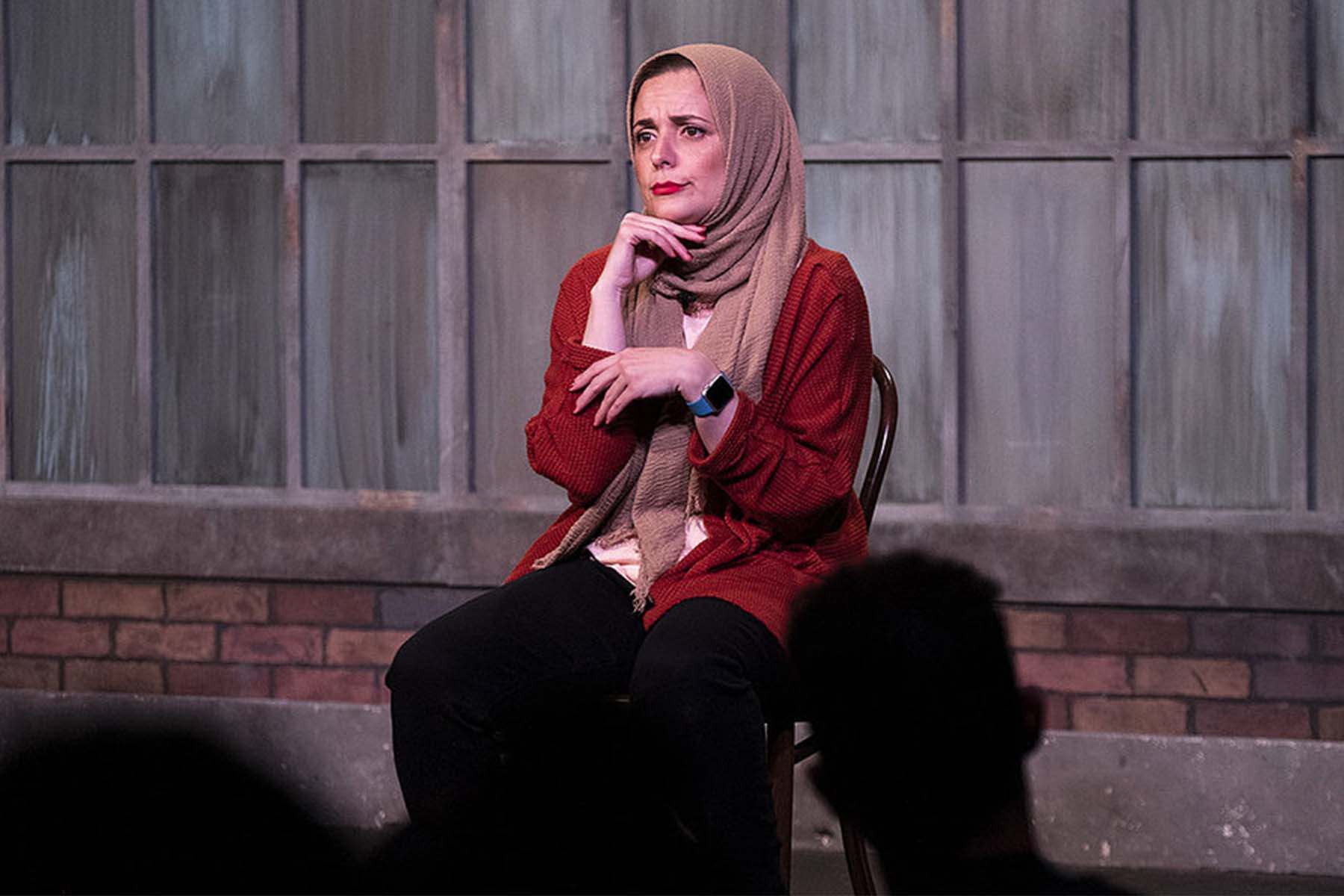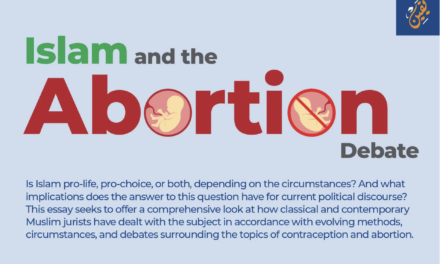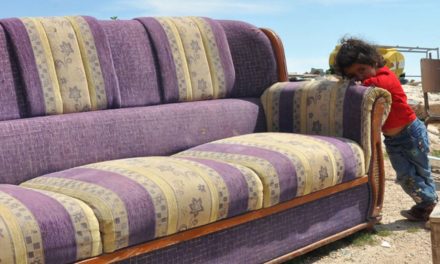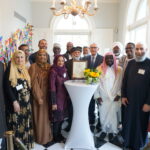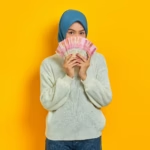Aqilah Allaudeen as “A Muslim woman comic walks into a bar: Changing perceptions through jokes” for Round Earth Media
Pinar Istek / Round Earth Media / IWMF
It’s intermission, and the Comedy Clubhouse is buzzing with conversation. Young people in business attire or hipster T-shirts have refreshed their drinks and are settling into plastic chairs. One woman stays perched on a corner bar stool, sipping water and chatting. She’s wearing a yellow sweater – and a hijab.
When the lights go dark, the host introduces her as Mariam Sobh, the only Muslim woman to take the stage tonight. Walking to the microphone, Ms. Sobh already has a good idea of what’s on the minds of audience members. She goes right at it.
“I was crossing the street in my neighborhood and this guy walked by me, muttering ‘ISIS’ under his breath,” Ms. Sobh says.
There’s a brief, uncomfortable pause and a few sparse chuckles in the crowd of about 20 people. “So I turn to him and said ‘Allahu akbar!’ I mean, if you really thought that I was a terrorist, would you want to provoke me?”
The room bursts into laughter. Ms. Sobh has corralled the elephant in the room, the same one that shows up nearly every time she performs. With that out of the way, she owns the space for the rest of her five-minute bit, leaving patrons in stitches with jokes about headscarves, terrorism, and patriarchy in conservative Muslim families.
Generations of comics have used stand-up to educate the broader society about their culture or ethnic group. Now, Ms. Sobh, a radio anchor whose mother is from the Midwest and father is Lebanese, is part of a growing wave of performers across the U.S. using comedy to puncture stereotypes of Muslim women and to show how much they have in common with their audiences.
Muslim women are still behind men such as Hasan Minhaj and Ramy Youssef, who have established themselves on the comedy scene, says Yasmin Elhady, an Egyptian-Libyan American lawyer and part-time comedian in Washington, D.C. Mr. Minhaj’s Netflix special, “Patriot Act,” aired in late 2018 and Mr. Youssef starred in his original comedy series, “Ramy,” released this year. Ms. Elhady expects Muslim women to follow suit, bringing their lives into the mainstream via comedy, the way Ellen DeGeneres did for the LGBTQ community.
“I just don’t think standing in a protest line and fighting for our rights is the best thing for Muslims right now,” Ms. Elhady says. “People both in the industry and out are very excited about us [female Muslim comedians]. I’ve only been met with kindness and support since I started in comedy two years ago.”
Early struggles
Things were different when Ms. Sobh started her career in Illinois 15 years ago. She wanted to expose people to Muslims in the arts, particularly in the post-9/11 era, when she was a student at the University of Illinois.
She hoped to start her career as a television news reporter but was turned down repeatedly.
“They would tell me off the record that I didn’t get the job because of my hijab,” she says. “That’s just how it was when I was starting out.”
So Ms. Sobh went to work for Illinois public radio station WILL-AM, and soon performed at open mic events and shows. She has been on the stand-up scene in Chicago for about four years.
“When I started out, none of my jokes were about being Muslim,” Ms. Sobh says. “But then I realized I needed to address the elephant in the room, which is me wearing a scarf, because a lot of people made assumptions once they saw it. I figured it was my chance to dispel the assumptions that people make about Muslims.”
Some audience members say they left Ms. Sobh’s show with a better understanding of what Muslims experience on a daily basis.
“A lot of the jokes were really funny, and at the same time, this lifestyle and culture are very different from my own,” says Jonah Dagen. The performance “made me a bit more conscious.”
Another audience member, Margaret Larkin, says she could relate to Ms. Sobh’s struggles with misconceptions and microaggressions.
While it’s a bonus when people walk away from her shows having learned something, Ms. Sobh says she’s just “an American woman who tells jokes and makes people laugh.”
At the Comedy Clubhouse, Ms. Sobh even took on a topic conservative Muslim communities shy from: sex.
“Something that is taboo in the Muslim community is the topic of sex,” she says. “It’s kind of ironic because if you look at all of the really religious communities, they are the ones who are doing it all the time. You look around and you see like, what, 10 kids?”
Comedy as commentary
Sabeen Sadiq, a 28-year-old Pakistani American also on the Chicago comedy circuit, says she feels the tension between confronting stereotypes and wanting her audience to understand that she isn’t so different from them.
Performing onstage is one way she can control the narrative. In a highly polarized society, comedy helps lessen some of the tension surrounding her faith, she says. Ms. Sadiq hosts and performs her bits at various bars across the city – a point of contention in her jokes.
“It was hard telling my conservative mom that I did stand-up in bars,” Ms. Sadiq joked during one of her late-night shows at Chicago’s iO Theater. “I’d be like, ‘There’s a curtain with guys on one side and women on the other – and we serve tea.’”
For Mona Aburmishan, a Palestinian American veteran of the Chicago comedy scene, comedy allows her to deliver the truth “in a lovable way.”
“When you want your kids or dogs to take their medicine, you hide it in food,” she says. “A lot of my jokes are kind of like that. They are really intentional, and I’ll make these subtle jokes where people don’t really process it till they walk out of the room.”
She attributes the growth in American Muslim women comedians to the need for Muslims to speak out in a more casual way, to get their message across without facing backlash.
“A lot of us Muslims are sick and tired of going to rallies and protests,” she says. “It doesn’t leave you feeling awesome. But if you can make somebody laugh, you’re the most powerful person in the room.”
